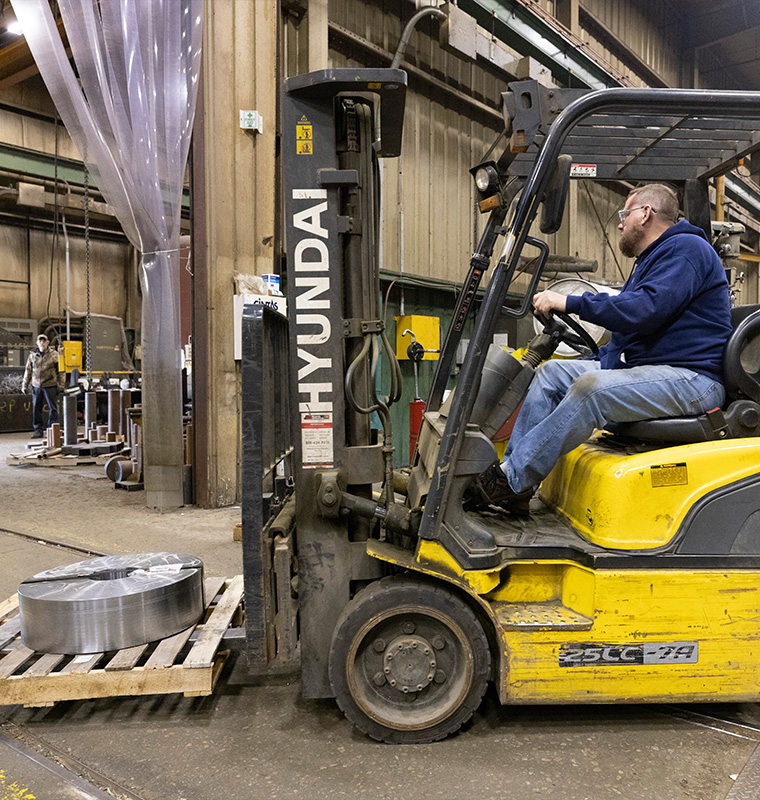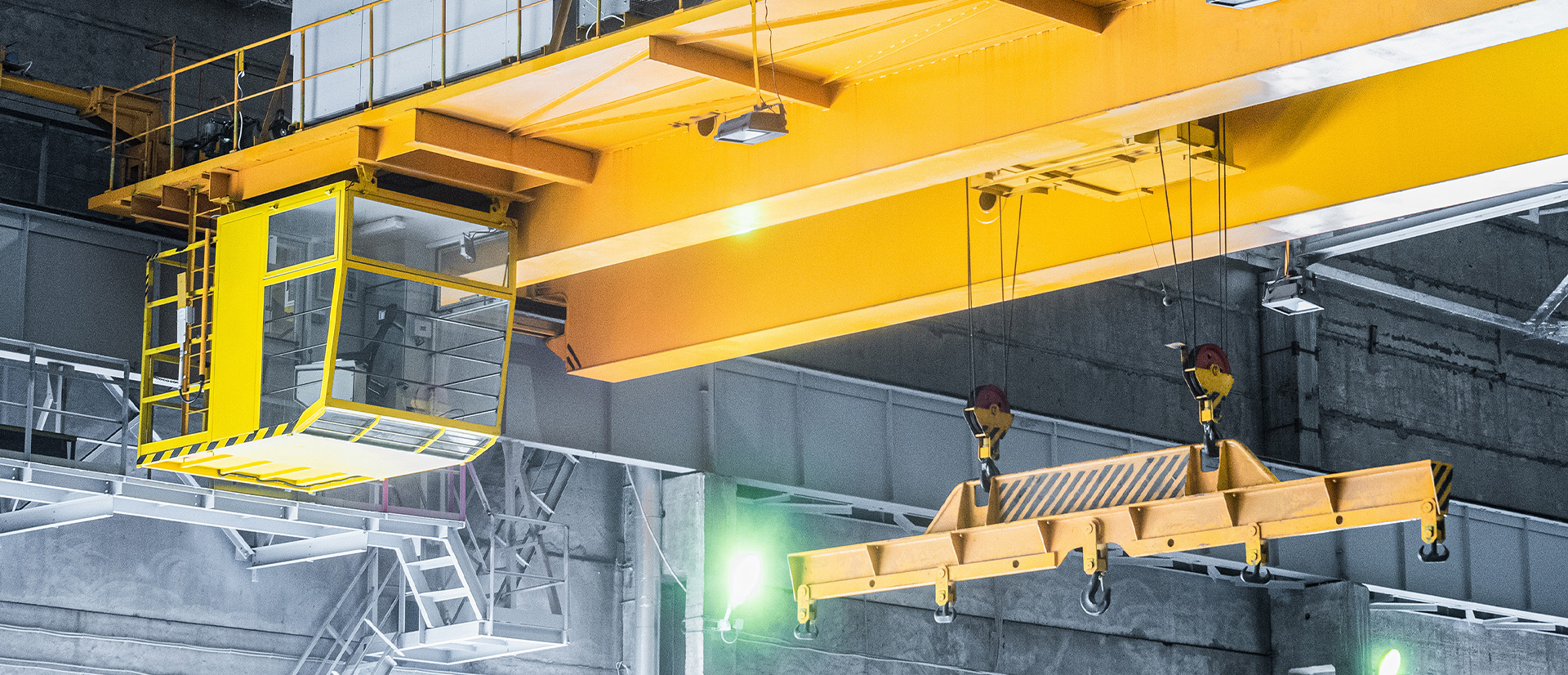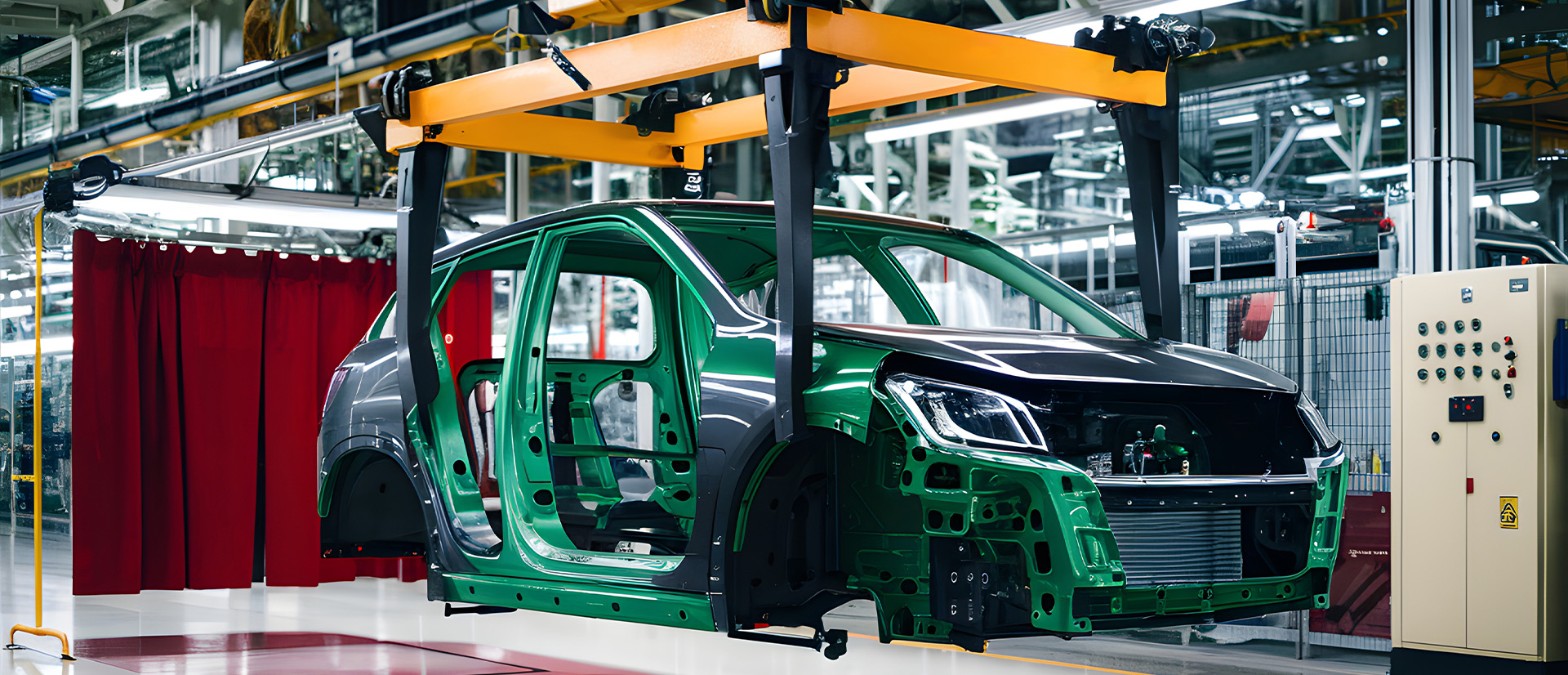Routine Maintenance for Cranes
One look at an overhead crane, and it’s easy to see why it has so much potential. The size, strength, and sheer versatility of these machines make them highly valuable in countless ways. There are many fields, and practically endless applications where cranes are used. From manufacturing to shipping, moving everything from steel to paper, the power and precision of cranes play an important role.
If you have overhead cranes at your facility, it’s crucial you take good care of them—here’s how:
Understand the Specific Crane You Have
The first step to taking care of any machine is understanding what you’re working with. Even if you’ve operated countless cranes, and even if you’ve performed crane repair, it’s crucial to remember that every machine is unique.
The structure and components may be different from a crane that looks and functions similarly. Because of this, you should always make an effort to understand the specific maintenance requirements of the crane you’re using or working on. To do this, you should:
- Consult the manufacturer about the recommended service schedule
- Call an expert in crane repair and crane maintenance services
- Stay current with OSHA & CMAA standards
While maintenance should be a regular process you perform on your crane, you should get into the habit of checking it out each time you use it.
Always Check Equipment Before Operating
Per OSHA 1910.179 it is required to check all functional operating mechanisms that would prohibit proper operation of the crane. This check should be done daily at the start of each shift or prior to its first use of the day. While performing these daily checks you should also be mindful if it sounds, feels, or performs in a way that’s abnormal. Consider questions like:
- Are there any leaks when the crane is moved?
- Does the crane stutter or move slower than normal?
- Do all my operations function properly?
- Do all my safety limits function properly?
- Can you hear any harsh grinding or screeching?
There are many benefits when you take the time to check your crane properly, both before operating and on dedicated maintenance schedules. Not only will it improve operations and potentially save you money, but it can also create a much safer worksite for all.
3 Types of Overhead Crane Maintenance to Complete
Once you’ve become familiarized with your crane’s specific makeup, how it should perform normally, and the importance of caring for it, you can get specific with your maintenance schedule. Here are the main maintenance categories every crane should be considered for:
1. Routine Maintenance
Just like any other moving machine, a crane has certain parts that need to be inspected and maintained regularly. This is because some parts may need to be replaced and certain functions must be performed on a routine basis. Consider the importance of simple but crucial tasks like:
- Changing oil and other fluids
- Applying lubrication where necessary
- Checking brakes for proper operation
- Verifying all limit switches are set correctly and operating properly
- Checking connection points to ensure they’re secure
Not only should you complete these and other routine maintenance tasks for your crane, but you should log them. When you keep detailed documents about your crane maintenance habits, it’s easier to stay on track with what’s needed. It’s also easier to stay compliant.
2. Mandatory Compliance Inspections
Speaking of compliance, cranes are subject to some stringent regulations. Because cranes are tasked with moving heavy materials, their margin for error is near zero. It’s common for regulators to put cranes and their operators to the test, so they can catch any dangers before they result in workplace accidents.
Brakes, hooks, ropes, and all other parts of the crane could be inspected by regulators. Inspections are common right after a crane is purchased. They are also required by OSHA on a regular basis and after crane repair or modifications. Check with your local OSHA board or crane service company for information about required inspections and tests so you can stay ahead on this required form of maintenance.
3. Preventive Maintenance
While mandatory maintenance is absolutely required by OSHA, some inspection habits are just good business practices. It makes sense to check for crane maintenance services you may need before you end up needing crane repair—because the latter can be more expensive.
You should go through a thorough checklist to look at all parts of your equipment periodically and evaluate its condition and potential remaining lifespan. Consider issues such as:
- Electrical components that have diminished in performance
- Structural sections that are showing signs of rust or degradation
- Add-on components that need to be replaced or refitted
By solving a small issue today, you could prevent a major one down the line. Your decision to make adjustments and tweaks could stop you from having to get expensive repairs and replacements.
Need Professional Crane Maintenance?
Cranes are incredibly useful machines, but they’re also incredibly demanding to deal with. Even if you’re well versed in the complexities of the equipment, you may not have the time or resources to handle all your own maintenance needs.
At Zenar, we’re crane experts who specialize in the design, building, repair, and delivery of these units across the country. Our all-American company would be proud to handle your service needs so you can feel confident in your equipment and stay focused on getting work done.
Contact us today so we can get to work servicing your overhead crane to the highest standards.
Read
More
Articles

Overhead Cranes vs. Forklifts
When it comes to material handling, efficiency, safety, and cost-effectiveness are always top concerns in any industrial environment. Two of the most common equipment types used in these settings are overhead cranes and forklifts.

Sustainability in Crane Manufacturing
The construction industry is a cornerstone of global development but is also one of the largest consumers of energy and producers of greenhouse gas emissions.

Elevate Automotive Operations with Custom Overhead Cranes
Efficiency and precision are top priorities in the automotive industry. Overhead cranes play a crucial role in streamlining operations, from the assembly line to the repair shop. These powerful tools not only enhance productivity but also ensure safety, making them indispensable in modern automotive facilities.